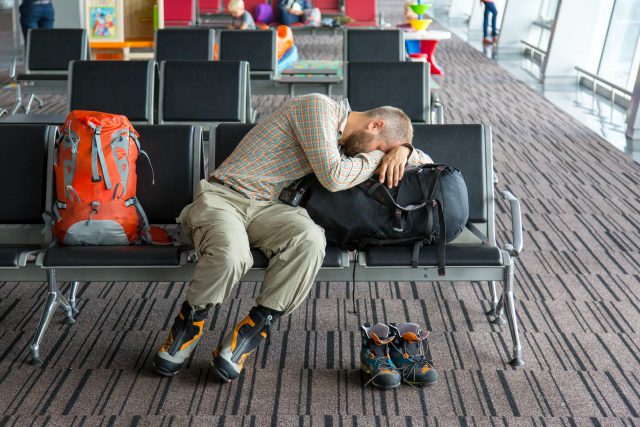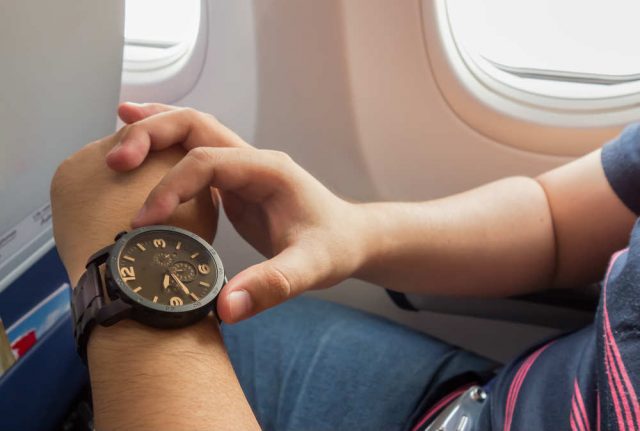Time zone stress affects millions of passengers around the world. Those who travel by plane for intercontinental flights suffer from a series of ailments that can be avoided thanks to scientifically proven methods.
Transoceanic journeys, stopovers, and hours of lost sleep. These are some of the reasons for jet lag stress. Accumulated fatigue can create tachycardia, insomnia, and other unpleasant effects on our health. Jet lag, also known as circadian dysrhythmias, refers to a condition in which rapid travel across different time zones causes sleep disturbances, daytime fatigue or sleepiness, and decreased mental efficiency.
Read also: How to Play With Dogs: Avoid Places Where There Are Other Dogs.
Most travelers experience jet lag . According to research conducted by airlines, 90-96% of travelers have experienced these symptoms. The condition can also affect travelers’ experts and staff onboard long-haul flights. However, such situations become frequent if we live with a trolley perpetually at hand.
How to Recover From Jet-Lag
Traveling often certainly has its merits, but there are also flaws. A confirmation of this comes from a recent study by the English University of Surrey. According to the research results, people who travel by plane every week experience considerable physical and psychological stress. This, according to the survey, would affect personal relationships and sleep quality, regardless of the travel class in which the flight takes place. The study refers to travelers on transoceanic routes.
However, jet lag stress can also affect those who infrequently travel, opting for a flight to the other side of the world. When you fly for more than five hours, a period of relaxation becomes necessary when you arrive at your destination.
The tiredness of the journey adds adaptation to a different time zone, even ten hours, compared to that of departure. In this way, without realizing it, we lose precious hours of sleep during the journey. This explains a range of symptoms, from digestive discomfort to irritability.
Natural Remedies for Jet-Lag
The effect of the time zone on our nervous system can be limited. There are several ways to travel while minimizing the consequences of changing time zones. They can be precious both for those who travel at any time of the year and those who suffer from the phenomenon during or after a long flight. To counteract the ” time zone sore,” then we can use scientifically proven methods. Here’s what they are:
- Timetables. Moving the hands before departure is a good remedy to bring meal and sleep times closer to those of the destination
- Travel west. Flying west we recover 92 minutes while in the opposite direction only 57. So if, for example, we have to go to Asia we will feel more the effects of jet lag
- Supply. The choice of food and drink can come in handy. If we arrive in the morning and need to be active, on the plane we sho take carbohydrates, on the other hand, we reach our des on the plantation at night. We should take protein foods that keep us awake during the flight
Also read: Tips from Teachers to Help your Children do a Good Job at Home
- Hydration. During air travel, it is easy to experience dry throat, eye irritation, and other phenomena. These are all symptoms of dehydration due to the low humidity of the cabin. Hence, it is necessary to drink plenty of water to allow the body to cope with such symptoms.
- Routine. Please resist the urge to sleep while it is noon at your destination. This is more difficult for people following a certain routine. However, it is necessary to follow the local rhythm as much as possible, avoiding rest at the wrong times.
- Choice of the plane. Those of the latest generation are often designed to combat jet lag stress. This happens thanks to a system of LED lights, which gradually highlight systems according to the sunlight during intercontinental flights. Furthermore, the armchairs are more spaced and spacious to facilitate air exchange.
Adapted and translated by Wiki Avenue Staff
Sources: Non Sprecare








